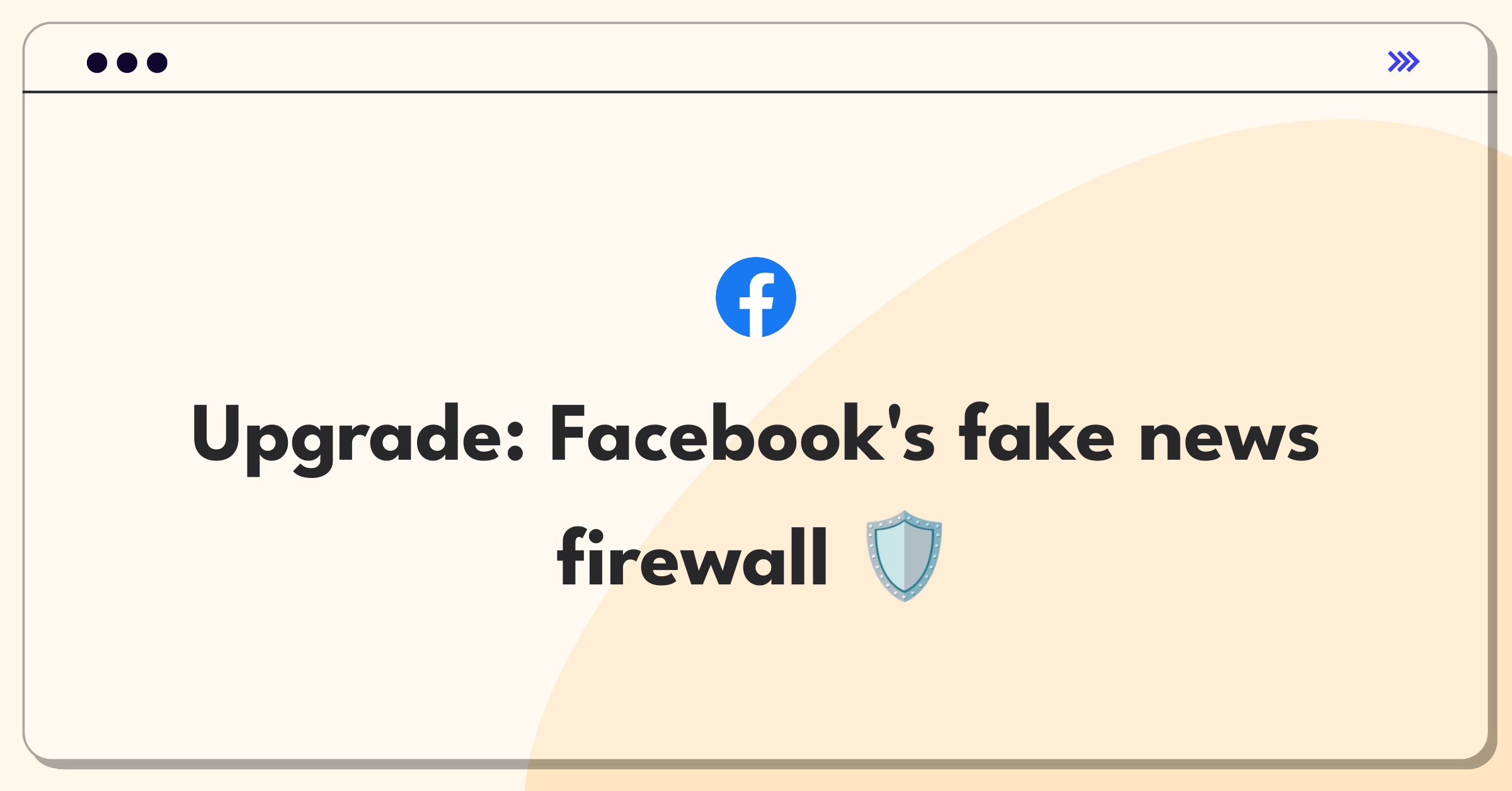Introduction
Detecting fake news on Facebook is a critical challenge that impacts user trust, platform integrity, and societal well-being. As we address this issue, we'll need to consider the complex interplay of content creation, distribution, and consumption on the platform. I'll approach this problem by first clarifying our objectives, then analyzing key user segments and their pain points. From there, we'll generate and evaluate potential solutions, and finally, establish metrics to measure our success.
Step 1
Clarifying Questions (5 mins)
Why this matters: Understanding the magnitude helps prioritize resources and approach. Hypothetical answer: Approximately 10% of shared news content is identified as potentially false or misleading. Impact: This suggests a significant but manageable problem, requiring a robust but scalable solution.
Why this matters: Helps avoid duplicating efforts and identifies gaps in current strategies. Hypothetical answer: Facebook uses AI algorithms, third-party fact-checkers, and user reporting systems. Impact: We'll need to focus on enhancing and complementing these existing measures.
Why this matters: Different types of fake news may require different detection and mitigation strategies. Hypothetical answer: Major sources include politically motivated disinformation, clickbait websites, and coordinated inauthentic behavior. Impact: Our solution should be adaptable to various forms of misinformation.
Why this matters: Establishes the scope and boundaries of what we're trying to detect. Hypothetical answer: Facebook considers content that is provably false, intentionally misleading, or designed to incite strong emotional reactions without factual basis. Impact: Our detection mechanisms need to align with this definition while remaining flexible for edge cases.
Based on these hypothetical answers, I'll assume that:
- The fake news problem is significant but not overwhelming.
- We have existing systems to build upon and improve.
- We need a multi-faceted approach to address various types of misinformation.
- Our definition of fake news is broad but focused on intentional deception and harm.
Tip
At this point, you can ask interviewer to take a 1-minute break to organize your thoughts before diving into the next step.
Subscribe to access the full answer
Monthly Plan
The perfect plan for PMs who are in the final leg of their interview preparation
$99.00 /month
- Access to 8,000+ PM Questions
- 10 AI resume reviews credits
- Access to company guides
- Basic email support
- Access to community Q&A
Yearly Plan
The ultimate plan for aspiring PMs, SPMs and those preparing for big-tech
$99.00 $33.00 /month
- Everything in monthly plan
- Priority queue for AI resume review
- Monthly/Weekly newsletters
- Access to premium features
- Priority response to requested question


.png)